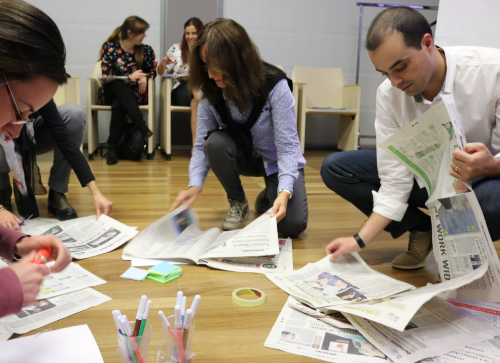Creating an effective study routine is a key factor in academic success. A good routine helps students manage their time, reduce stress, and retain information more efficiently. While there is no one-size-fits-all approach, developing a personalized routine that matches individual goals and learning styles can make studying more productive and less overwhelming. Here are practical steps to help students find a study routine that works for them.
1. Set Clear Academic Goals
Before creating a routine, define what you want to achieve. Whether it’s improving grades, preparing for exams, or staying on top of daily assignments, clear goals help prioritize tasks and maintain focus.
2. Know Your Learning Style
Understanding whether you learn best through reading, listening, doing, or watching can help shape your study methods. Tailoring your routine to suit your learning preferences makes studying more effective.
3. Choose the Right Study Environment
Find a place where you can concentrate without distractions. This might be a quiet library, a dedicated study room, or even a specific corner of your home. Consistent environments reinforce study habits.
4. Plan Your Study Time
Use a calendar or planner to block out regular study sessions. Break larger tasks into manageable chunks and distribute them across the week. Stick to a schedule that complements your peak focus times.
5. Use Active Study Techniques
Instead of passively reading, try summarizing information, creating flashcards, teaching the material to someone else, or taking practice quizzes. These active strategies improve memory and understanding.
6. Take Regular Breaks
Incorporate short breaks to prevent burnout and keep your mind fresh. The Pomodoro Technique—25 minutes of focused work followed by a 5-minute break—is a popular method for maintaining attention.
7. Stay Organized
Keep your notes, materials, and digital files organized by subject or project. Use folders, notebooks, or apps like Notion or Google Drive to stay on track.
8. Limit Distractions
Silence your phone, turn off notifications, and use website blockers if necessary during study time. Fewer distractions help you stay focused and make the most of your time.
9. Review and Adjust Your Routine
Check in weekly to assess what’s working and what’s not. Be open to adjusting your schedule or methods to better suit your workload and preferences.
10. Take Care of Your Well-Being
A successful study routine includes sleep, nutrition, and exercise. A healthy body supports a sharp and motivated mind.
Conclusion
Finding a study routine that works takes time, experimentation, and self-awareness. By setting goals, creating structure, and prioritizing well-being, students can develop sustainable habits that support both academic achievement and personal growth.














